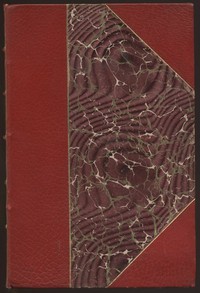Old Mortality, Complete by Walter Scott (christmas read aloud .txt) 📗

- Author: Walter Scott
Book online «Old Mortality, Complete by Walter Scott (christmas read aloud .txt) 📗». Author Walter Scott
“This statement shows the religious wanderer to have been very poor in his old age; but he was so more by choice than through necessity, as at the period here alluded to, his children were all comfortably situated, and were most anxious to keep their father at home, but no entreaty could induce him to alter his erratic way of life. He travelled from one churchyard to another, mounted on his old white pony, till the last day of his existence, and died, as you have described, at Bankhill, near Lockerby, on the 14th February, 1801, in the 86th year of his age. As soon as his body was found, intimation was sent to his sons at Balmaclellan; but from the great depth of the snow at that time, the letter communicating the particulars of his death was so long detained by the way, that the remains of the pilgrim were interred before any of his relations could arrive at Bankhill.
“The following is an exact copy of the account of his funeral expenses,—the original of which I have in my possession:—
“Memorandum of the Funral Charges of Robert Paterson, who dyed at Bankhill on the 14th day of February, 1801. To a Coffon................... L.0 12 0 To Munting for do............... 0 2 8 To a Shirt for him.............. 0 5 6 To a pair of Cotten Stockings... 0 2 0 To Bread at the Founral......... 0 2 6 To Chise at ditto............... 0 3 0 To 1 pint Rume.................. 0 4 6 To I pint Whiskie............... 0 4 0 To a man going to Annam......... 0 2 0 To the grave diger.............. 0 1 0 To Linnen for a sheet to him.... 0 2 8 L.2 1 10 Taken off him when dead,.........1 7 6 L.0 14 4“The above account is authenticated by the son of the deceased.
“My friend was prevented by indisposition from even going to Bankhill to attend the funeral of his father, which I regret very much, as he is not aware in what churchyard he was interred.
“For the purpose of erecting a small monument to his memory, I have made every possible enquiry, wherever I thought there was the least chance of finding out where Old Mortality was laid; but I have done so in vain, as his death is not registered in the session-book of any of the neighbouring parishes. I am sorry to think, that in all probability, this singular person, who spent so many years of his lengthened existence in striving with his chisel and mallet to perpetuate the memory of many less deserving than himself, must remain even without a single stone to mark out the resting place of his mortal remains.
“Old Mortality had three sons, Robert, Walter, and John; the former, as has been already mentioned, lives in the village of Balmaclellan, in comfortable circumstances, and is much respected by his neighbours. Walter died several years ago, leaving behind him a family now respectably situated in this point. John went to America in the year 1776, and, after various turns of fortune, settled at Baltimore.”
Old Nol himself is said to have loved an innocent jest. (See Captain Hodgson’s Memoirs.) Old Mortality somewhat resembled the Protector in this turn to festivity. Like Master Silence, he had been merry twice and once in his time; but even his jests were of a melancholy and sepulchral nature, and sometimes attended with inconvenience to himself, as will appear from the following anecdote:—
The old man was at one time following his wonted occupation of repairing the tombs of the martyrs, in the churchyard of Girthon, and the sexton of the parish was plying his kindred task at no small distance. Some roguish urchins were sporting near them, and by their noisy gambols disturbing the old men in their serious occupation. The most petulant of the juvenile party were two or three boys, grandchildren of a person well known by the name of Cooper Climent. This artist enjoyed almost a monopoly in Girthon and the neighbouring parishes, for making and selling ladles, caups, bickers, bowls, spoons, cogues, and trenchers, formed of wood, for the use of the country people. It must be noticed, that notwithstanding the excellence of the Cooper’s vessels, they were apt, when new,





Comments (0)